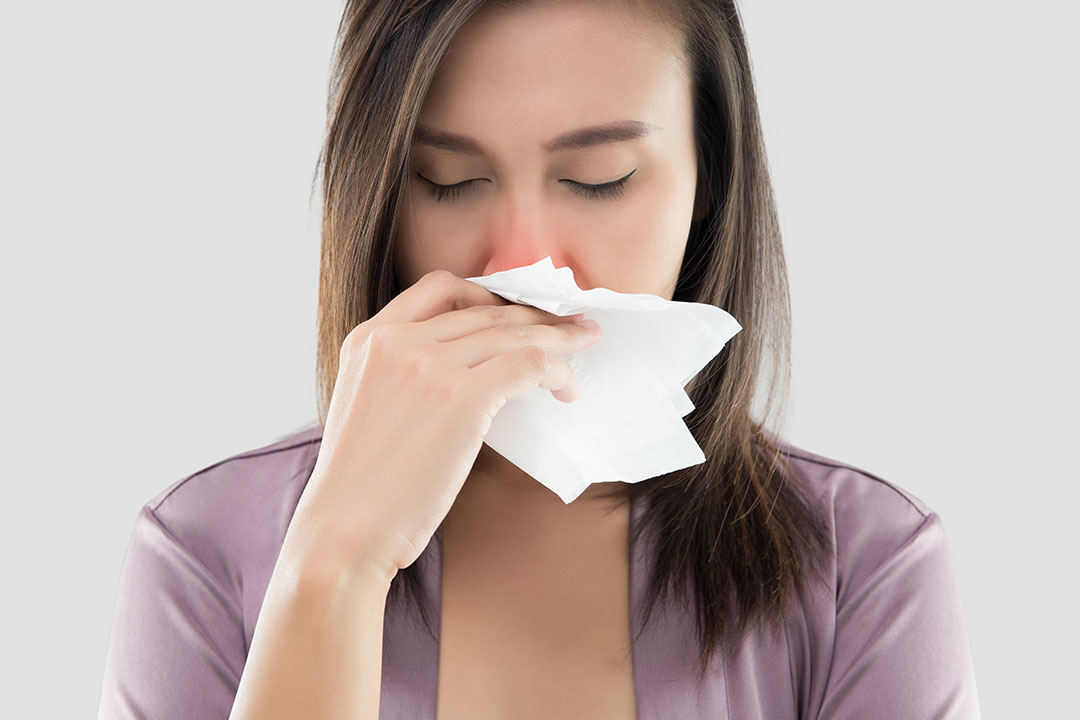Unfortunately, you wake up the day before your surgery and realize that you have a scratchy throat, runny or stuffy nose, and a cough. These certainly would seem to be symptoms indicative of a cold, so now the question becomes one of how much risk this might present for your surgical procedure.

Cold Symptoms
The symptoms of a cold that most people recognize, a runny or stuffy nose, sore or scratchy throat, and a cough that is either dry or may produce phlegm, can also be indicative of allergies or hay fever. However, allergies or hay fever usually also include watery or itchy eyes, which generally are not present with a cold.
You may also have a slight fever, but if your temperature goes above 100 F, along with muscle pain, extreme fatigue, and coughing with bright green phlegm, this could indicate either the flu or pneumonia, in which case, you should cancel your surgery and see your primary care physician right away.
Risks for Surgery if You Have a Cold
Anesthesia: If your surgical procedure will require general or twilight (sedation) anesthesia, your cold symptoms, particularly a sore or scratchy throat, will worsen. If a breathing tube must be inserted, or certain anesthetic gasses are used, your mouth and throat will dry out. Furthermore, you will also be given restrictions against drinking any fluids for a minimum of eight to 12 hours prior to surgery. Even if you are not sick, these will all dry your mouth and throat, but having a cold will just make it worse.
Initial recovery from surgery: While a cold can cause complications from anesthesia before and during surgery, you may also have problems while waking up from surgery. When you first wake up from anesthesia, you may find yourself coughing as the breathing tube is removed. Although this is a normal response, it can be worse if you have a cold. It may actually tighten the bronchial tubes that lead into the lungs, limiting the amount of oxygen you are taking in, and causing spasms.
Recovery at home: Even after you go home following surgery, you may still have problems. A cough produces what amounts to an internal shock wave throughout your body. If you have a coughing fit, as can happen with a cold, it may actually put enough strain on your surgical sutures to have them come loose, thereby opening up the incisions. Obviously, this can delay healing time and lead to excessive scarring.
Bottom line: If you catch a cold, it’s better to cancel your surgical procedure and reschedule at a later time when you have recovered. Dr. Deuber understands your eagerness to get your procedure done, but it is not worth the chance of risking increased complications.
